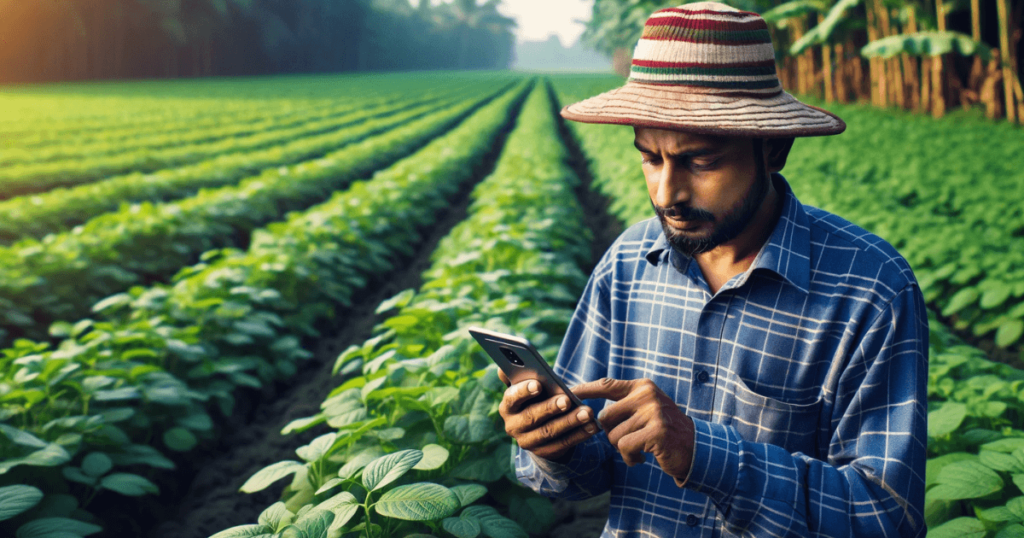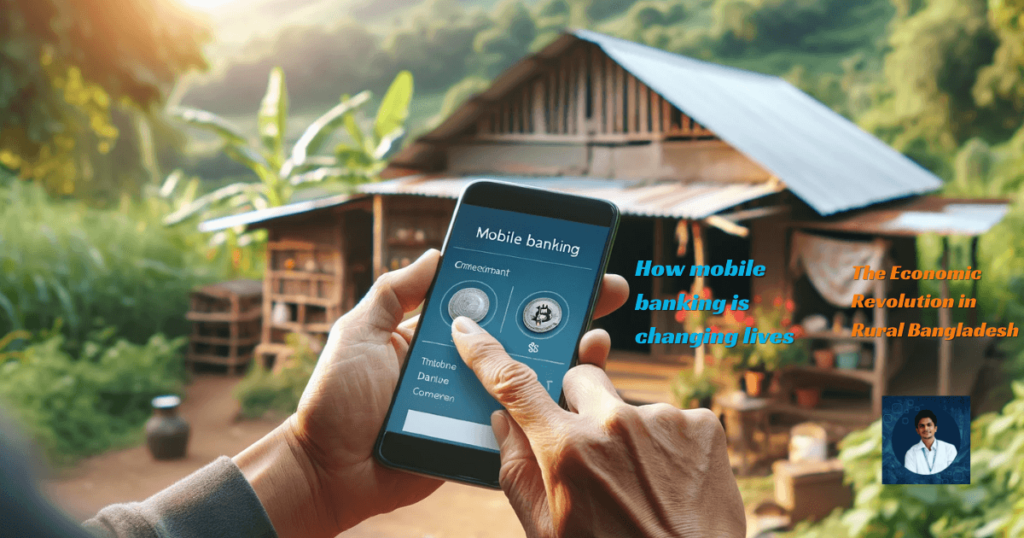In the era of digital transformation, one of the most significant changes in developing economies is the emergence of mobile banking. In Bangladesh, a country marked by its vast rural landscape and agricultural dominance, mobile banking is not just a financial tool; it’s a revolution. This blog explores the profound impact of mobile banking on the socio-economic landscape of rural Bangladesh, drawing insights from a detailed study published in the International Journal of Innovation in the Digital Economy.
Transforming Financial Accessibility

Historically, Bangladesh’s rural areas have suffered from a lack of financial services, with only a small fraction of the population having access to formal banking. Mobile banking, however, has bridged this gap significantly. As mobile phone usage soared, financial institutions seized the opportunity to extend their reach through mobile banking services. This transformation has enabled rural populations to access financial services that were previously out of reach, fostering financial inclusion and opening doors to economic empowerment.
The Catalyst for Socio-Economic Development
The introduction of mobile banking in Bangladesh has had multifaceted effects on rural life. Firstly, it has simplified transactions, making them faster and more convenient. People no longer need to travel long distances to access banking services, saving both time and money. This ease of access has encouraged more people to engage in banking activities, including savings and remittances.
Secondly, mobile banking has significantly impacted the way remittances are handled. For a country that relies heavily on remittances, the ability to transfer money quickly and securely has been a game-changer. It has not only reduced dependency on informal and often risky transfer methods but has also ensured that funds reach their intended recipients promptly, thus contributing to the financial stability of rural households.
Spurring Entrepreneurship and Employment

One of the most exciting outcomes of mobile banking in rural Bangladesh is its role in fostering entrepreneurship and creating job opportunities. Easy access to financial services has empowered many to start small businesses, leading to an upliftment in their standard of living and contributing to the local economy. Mobile banking agents have become a new source of employment, providing services to the community and earning commissions.
Impact on Agricultural Sector
Agriculture, being the backbone of the rural economy, has also felt the positive impacts of mobile banking. Farmers now have quicker access to funds, enabling them to make timely decisions regarding buying seeds, fertilizers, and other essentials. This immediacy can make a significant difference in agricultural output and, consequently, in the livelihoods of farmers.
Changing Savings Behavior
Despite its many benefits, the impact of mobile banking on savings behavior in rural Bangladesh is still evolving. While there is a growing trend of using mobile accounts for saving money, particularly for emergency needs, a substantial shift in savings behavior is yet to be seen. However, the convenience offered by mobile banking is likely to encourage more people to adopt saving practices in the future.
Enhancing Consumption and Lifestyle

Mobile banking has also altered consumption patterns. With easier access to funds, rural populations are increasingly indulging in more diverse and frequent shopping, including online purchases. This change not only reflects an improved lifestyle but also contributes to the growth of local and online markets.
Challenges and Concerns
Despite its many advantages, mobile banking in rural Bangladesh is not without challenges. Technical complexities, security concerns, and a lack of awareness are significant hurdles. The service is also misused at times for illegal activities like money laundering and fraud, highlighting the need for better regulation and user education.
The Road Ahead
As Bangladesh strides forward, the role of mobile banking in shaping its rural economy cannot be overstated. There is a need for continuous efforts from the government and financial institutions to expand and improve mobile banking services, ensuring they are accessible, secure, and user-friendly. Education campaigns to increase awareness about the safe use of mobile banking are also crucial.
Conclusion: Mobile Banking in Rural Bangladesh
In conclusion, mobile banking has emerged as a cornerstone of economic development in rural Bangladesh. By providing easy access to financial services, it has opened up new opportunities for growth and stability. As this trend continues, we can expect to see further socio-economic advancements, contributing to the overall development of the country.
Sharma, S., Ahmed, S., & Hossain, M. M. (2022). Meaning of New Means: Exploring the Economic Impact of Mobile Banking on Rural Bangladesh. International Journal of Innovation in the Digital Economy, 13(1), 1–18.
Read more:

